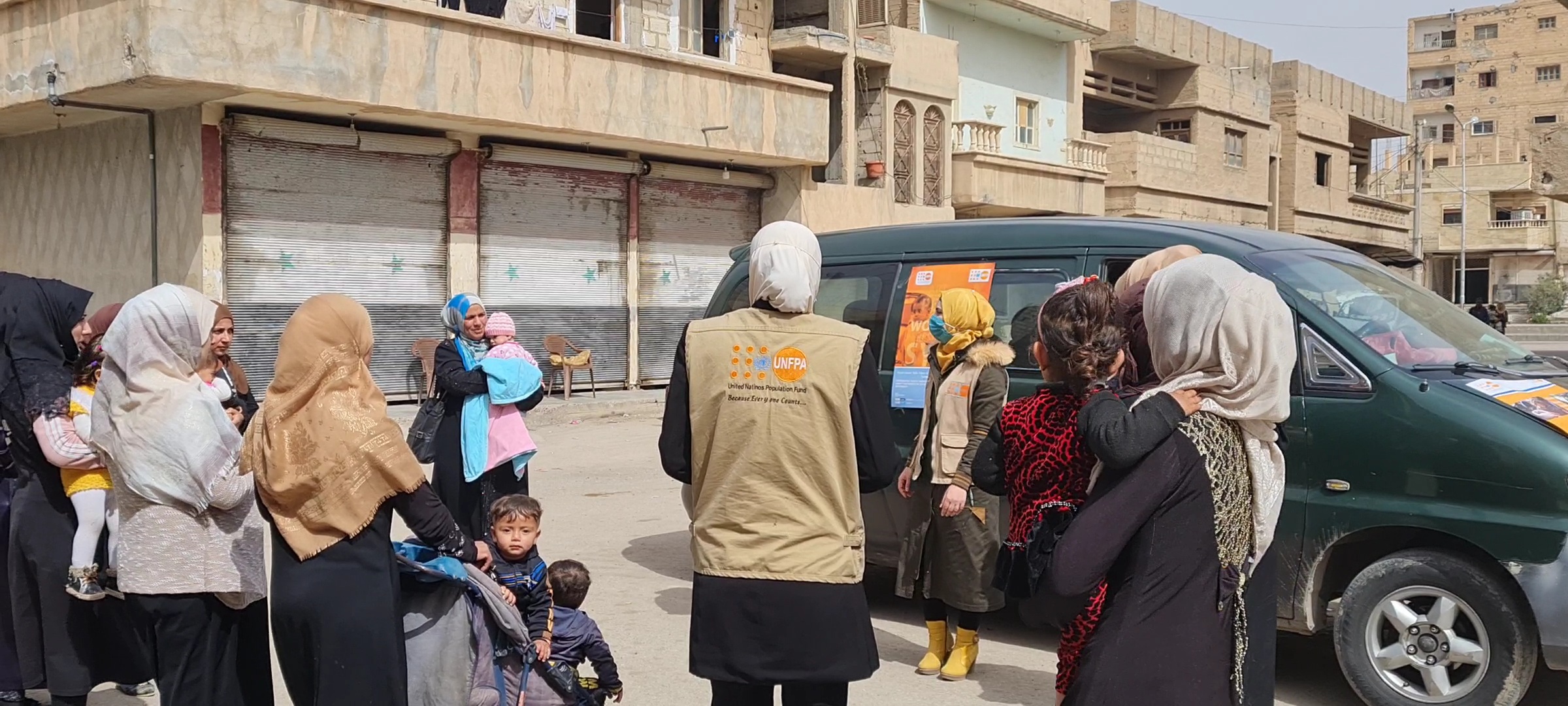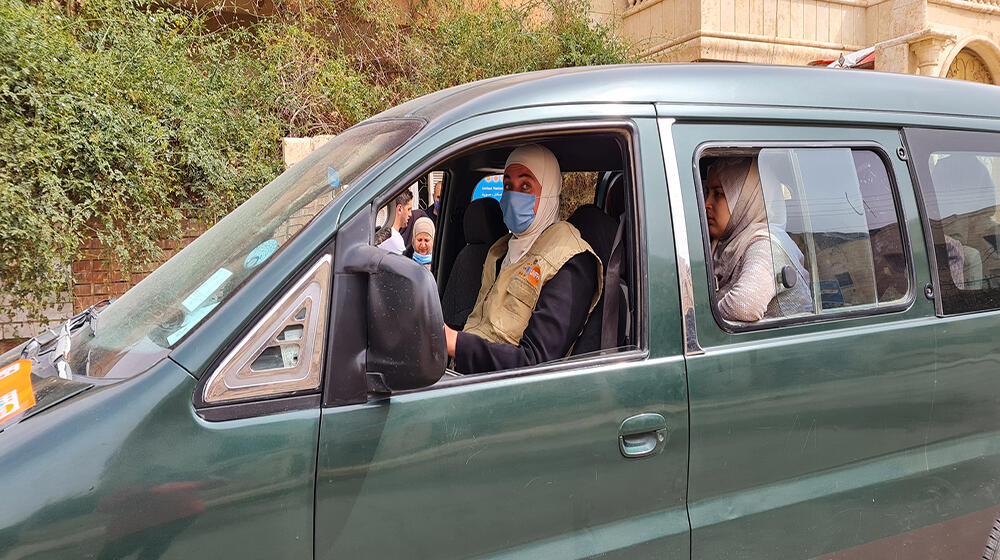Syria- Damascus
“Being able to help women challenge their oppressors and feel like they have agency over their body is something I will not trade for anything in the world’, Olpaht told our UNFPA staff.
UNFPA supported the hiring of Olphat, the first female driver to be working in UNFPA-supported facilities in Syria. In Deir ez-Zor, Eastern Syria. Olphat initially took on the challenge to be part of the humanitarian world, but now admits that the initiative has changed her life.
Women have increasingly requested support for transportation and identified the high cost of mobility as a main barrier to accessing the services they needed, as noted during UNFPA’s visits to Deir ez-Zor.
In response to the dire needs identified in Deir ez-Zor, exacerbated by the ongoing economic crisis, UNFPA- Syria, in collaboration with its implementing partner, assigned Olphat one service car to safely drive women and adolescent girls to UNFPA-supported service provision points.
The emergence of female drivers in a traditionally male-dominated profession is not only groundbreaking for the women of Deir ez-Zor, but also challenges common social practices in locations where women often see their freedom of movement limited by their families and communities.
“I am thankful for this service because now my husband allows me to go to the center to receive the services that I need,” Om Kareem, one of the passengers shared.
The van supports women and adolescent girls' safe access to life-saving reproductive health and preventive gender-based violence (GBV) services. Amidst the deteriorating economic situation in Syria, women and girls, particularly in remote and isolated areas like Deiz ez-Zor are often exposed to greater GBV risks, hindering their safe access to service points.
“We were surprised at first, but now we are comfortable that our wives, sisters and daughters are driven by a skilled female driver - we need more of these services.” Shared by one of the male community leaders in Deir ez-Zor.
Through this project, UNFPA adopted a gender transformative approach, creating opportunities for women to become a proactive agent in protecting each other. The service has also allowed other women to feel safe and assisted them in overcoming mobility barriers.
While the initiative was initially implemented to facilitate the movement of women in Deir ez-Zor, the van has now become a safe space for its passengers, supporting the community’s journey towards evolving social practices.

“This is not only a van to transfer beneficiaries safely to service provision points, it is a safe space for women who have gone through a lot and appreciate the opportunity to socialize among themselves on the way to receive services they desperately need.” Olphat, added with full satisfaction covering her face while talking to UNFPA staff.
Olphat emphasizes the importance of replicating such an initiative to meet the dire needs of women and girls in Syria. "I really hope that this initiative continues and evolves because women deserve to access those services safely and have control over their body."
“At first I only cared about accessing the clinic, but now I enjoy chatting with other passengers - it is a stress-reliever itself for me.” One of the passengers concluded.
UNFPA, in line with its mandate to promote gender equality, is committed to supporting women like Olphat, who play an important role in tackling gender norms in Syria. UNFPA will keep leveraging all stakeholders' engagement to serve the most vulnerable, striving to reach a world where every pregnancy is wanted, every childbirth is safe and every young person's potential is fulfilled.


